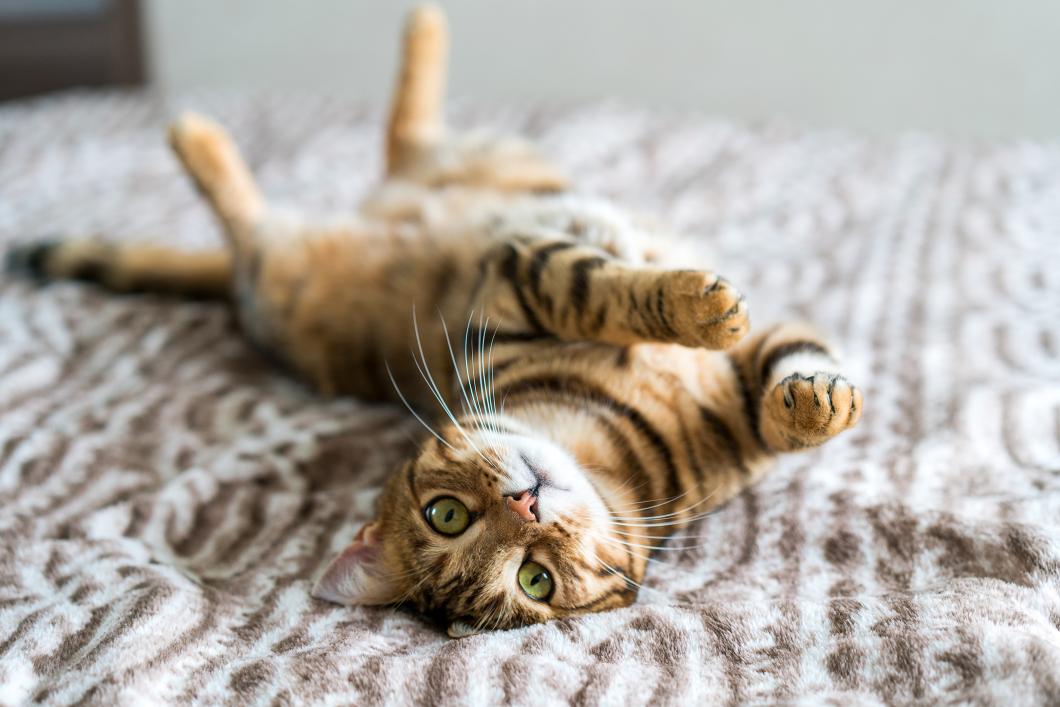Feline Hyperthyroidism: Overlooked Signs in Aging Cats

The thyroid gland plays an important role in feline health, but it’s often overlooked or misunderstood. Part of the endocrine system, the thyroid gland is responsible for producing a specific hormone that impacts metabolism. Hypothyroidism occurs when not enough hormone is secreted by the thyroid. Hyperthyroidism, as the name suggests, is the exact opposite. An overabundance of thyroid hormone has a big impact on day-to-day metabolic functioning, but feline hyperthyroidism can be managed with care and attention.
Knowing the Signs
Older cats commonly suffer from hyperthyroidism because of a tumor in the thyroid gland. While largely benign, a growth in the thyroid gland can disrupt the normal function and increase the production of the thyroid hormone.
Symptoms that may alert owners of cats may include:
- Weight loss
- Increased appetite
- Vomiting or diarrhea
- Increased vocalization
- Increased heart rate
- Increased blood pressure
- Agitation or uncharacteristic excitement
Feline hyperthyroidism must be treated right away to prevent serious health problems and early death.
Diagnosis and Treatment
A thorough physical examination includes feeling along the neck for an enlarged thyroid. Clues from a cat’s blood pressure, heart rate, urinalysis, and other elements of health may complete the picture gained from a complete blood chemistry panel. Elevated T4 levels, the thyroid hormone known as thyroxine, as well as a complete thyroid panel can confirm feline hyperthyroidism.
An ultrasound or X-ray may be relied on to assess the size and shape of the thyroid gland (and check for thyroid tumors), whereas an electrocardiogram (ECG) can measure heart function.
Thyroid Disease in Cats
With diligent management, feline hyperthyroidism can be successfully and effectively controlled. With the goal of reducing the amount of thyroid hormone produced, the following strategies may be recommended:
- Because iodine is necessary to synthesize thyroid hormone, restricting iodine in the diet with a prescription food can be very helpful.
- Prescription medication can inhibit the production of thyroid hormone, but does depend on routine blood pressure readings to ensure correct dosing. This can become less effective over time.
- Surgical removal of the thyroid gland is effective, but often leads to thyroid hormone supplementation. Calcium and phosphorus levels may be affected by the surgical removal of the thyroid gland, and must be monitored to prevent hypothyroidism.
- Radioactive iodine is given in a single injection and has a 95% or better cure rate. This can be a great option for some cat owners, but the cost can be too high for many.
Cat Energy Changes and Weight Loss
Early signs of hyperthyroidism can be detected through routine wellness exams. The sooner we treat older kitties for diseases like this, the more effective treatment can be. If your cat starts displaying unusual signs, it’s always worth it to have them checked out. We are always here to help your cat and deliver peace of mind. Please call us at (817) 733-3011 with any questions or concerns.


